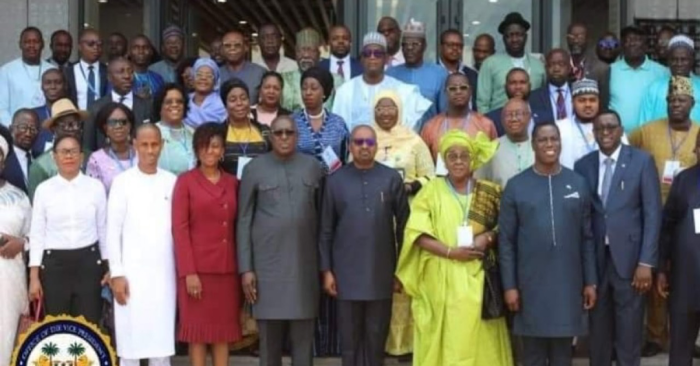On 20th March 2023, Vice President of Sierra Leone, Dr. Mohamed Juldeh Jalloh, took the stage at the ECOWAS Parliament’s five-day delocalized joint meeting in Freetown. The focus of the gathering was the “regional energy market and energy transition,” an issue of paramount importance to West African nations.
Dr. Jalloh underscored the formidable challenges confronting the region in energy access and provision. He emphasized the imperative to build on existing regional energy initiatives and pointed to the financial barriers inhibiting energy expansion, particularly for certain West African countries. The Vice President urged member states to attract private sector investments into the energy market, acknowledging the sector’s infrastructural deficiencies and advocating for collaborations with bilateral and multilateral institutions.
Highlighting the obstacles faced by the Bio administration since assuming office, Dr. Jalloh detailed issues such as poor utility governance architecture, limited solar mini-grid, and insufficient generation and transmission capabilities. He stressed the importance of engaging with international institutions to secure investments that would alleviate these challenges and ensure wider access to electricity.
Revealing strides made by Sierra Leone through the Elaborate Strategic Plan, Dr. Jalloh disclosed an increase in energy supply from 16% to 35% nationwide. Notably, 56 towns now enjoy renewable solar energy, new generation outlets have been established, and subsidies on electricity have been reduced. He highlighted specific advancements in electricity supply in Bo, Kenema, and Kono districts via the Transco CSLG connection, with a promise of surpassing 50% energy access in Sierra Leone in the near future.
Calling upon ECOWAS to provide crucial support for member countries, Dr. Jalloh urged a shift from utility energy to productive energy. He implored the ECOWAS Parliament to adopt a regional approach, emphasizing the need for the energy sector to undergo a vital transition for the prosperity of the region, aligning with ECOWAS’s Vision 2050.
The Vice President stressed the interdependence of a robust productive sector and expansive energy access, asserting that progress in one is contingent on the other. He emphasized the significance of a sound governance architecture in managing the energy sector, aiming to reduce both technical and commercial losses. Dr. Jalloh emphasized the collective responsibility of the region to create industries, generate employment, and build essential road networks to foster a prosperous and interconnected West Africa.
Dr. Mohamed Juldeh Jalloh’s address at the ECOWAS Parliament meeting stands as a clarion call for collaborative efforts, private sector involvement, and strategic regional planning to overcome energy challenges and steer West Africa towards a more sustainable and prosperous future.











